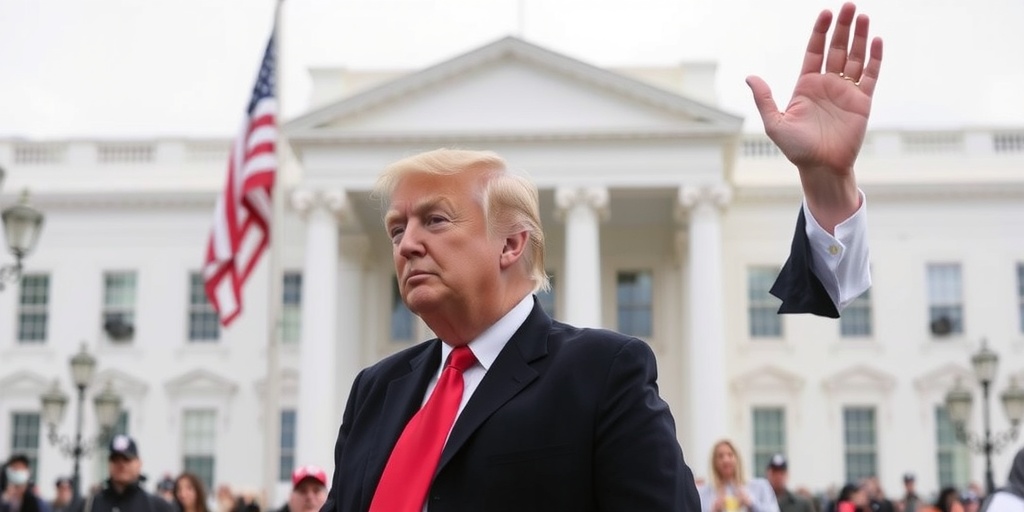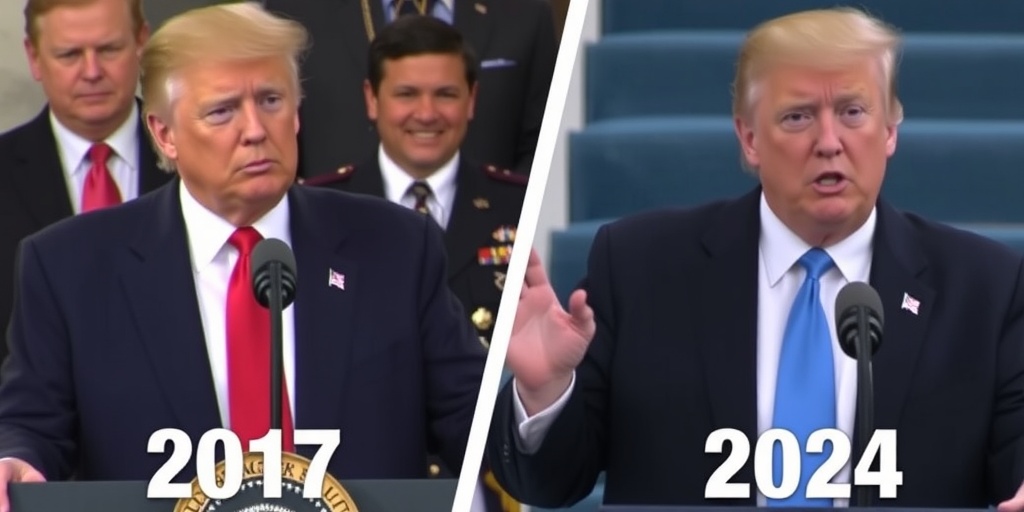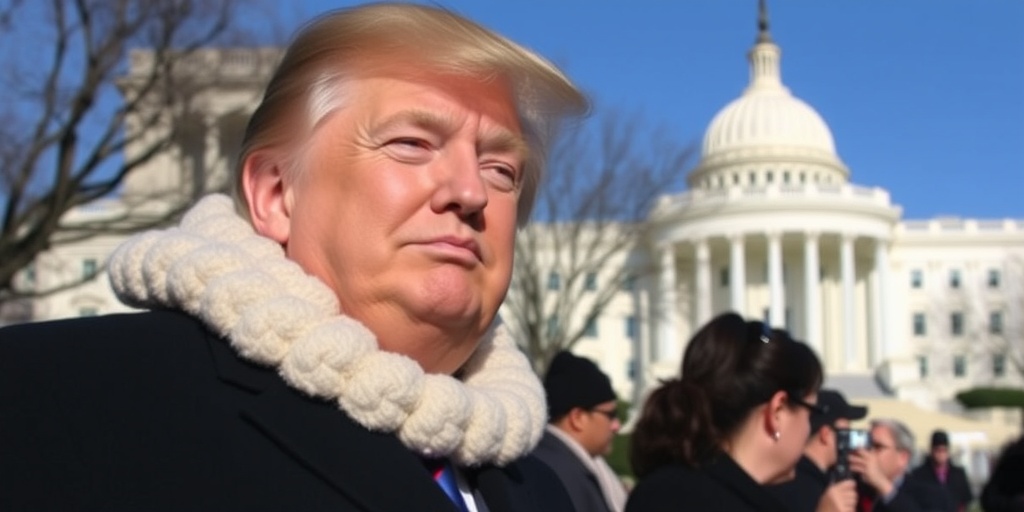Now Reading: Fact Check: Trump’s Inauguration Day
-
01
Fact Check: Trump’s Inauguration Day
Fact Check: Trump’s Inauguration Day

Title: President Trump’s Inaugural Address: A Fact-Checking Overview of Key Talking Points
President Donald Trump delivered an impassioned inaugural address marked by bold proclamations and promises, but several of his statements regarding the economy, immigration, world affairs, and ongoing legal issues surrounding his conduct have drawn scrutiny. Fact-checks conducted by analysts, including Linda Qiu, reveal a pattern of inaccuracies and misleading claims in the remarks made by the president.
In his address, Trump touted the state of the American economy, claiming that the country was in dire straits before he took office. He asserted that job creation was stagnant and that manufacturing had been decimated. However, data from the U.S. Bureau of Labor Statistics indicates that the unemployment rate had reached a historic low of 4.7% by the end of the preceding administration, with over 11 million jobs created during that period. While it is true that there were concerns about job growth in certain sectors and income inequality, Trump’s characterization oversimplifies a complex economic landscape.
Regarding immigration, Trump reiterated his long-standing message about the necessity of building a wall along the southern border with Mexico. He argued that unchecked immigration was a primary driver of crime and economic strain in American communities. Empirical studies, however, have consistently shown that immigrants contribute significantly to the economy and overall public safety. In fact, the Cato Institute and other research organizations have reported that immigrants are less likely to commit crimes than native-born Americans. This narrative of fear surrounding immigration does not align with statistical evidence and undermines the contributions of immigrants to society.
In the realm of world affairs, Trump portrayed a vision of America beset by adversaries who, he claimed, had taken advantage of the nation on the international stage. He accused previous administrations of failing to prioritize American interests and asserted that trade agreements had disproportionately benefited other countries at the expense of American workers. While there is some debate about the impacts of global trade, many economists argue that such agreements foster economic growth and create jobs by opening new markets for American goods and services. Trade imbalances are often influenced by multiple factors, including domestic consumption patterns and the global economy’s interconnected nature rather than solely being attributed to particular administrations.
Furthermore, President Trump addressed the ongoing legal matters surrounding his conduct, echoing claims of being improperly targeted by political adversaries and law enforcement. He labeled the investigations into his actions as a “witch hunt,” insisting that they were baseless and politically motivated. It is essential to differentiate between the legal scrutiny faced by Trump and his assertion of victimhood. Various courts and legal entities have determined that there are substantial grounds for investigation, which includes issues related to campaign finance violations and potential obstruction of justice. While Trump and his supporters maintain that these prosecutions are politically charged, legal experts argue that they stem from credible allegations deserving of investigation.
Moreover, Trump’s rhetoric often simplifies complicated issues into black-and-white narratives. For instance, he spoke of a divided electorate but ignored the variety of perspectives and underlying factors that contribute to political polarization. The state of American democracy is multi-dimensional, influenced by socioeconomic disparities, media consumption patterns, and cultural shifts that extend beyond any single administration’s policies.
As the nation moves forward, it is crucial for citizens to engage with the facts underpinning political discourse. A comprehensive understanding of these issues allows for informed decision-making and fosters a more constructive dialogue among constituents and their leaders. Misinformation, whether intentional or not, can lead to misguided policies and societal division.
In conclusion, while President Trump’s inaugural address was filled with promises and a commitment to change, the inaccuracies and misleading statements highlighted by fact-checkers like Linda Qiu warrant scrutiny. Looking ahead, it is essential for the debate around these significant topics to be grounded in factual accuracy to ensure that American democracy thrives on a foundation of truth.
Stay Informed With the Latest & Most Important News
Previous Post
Next Post
-
 01New technology breakthrough has everyone talking right now
01New technology breakthrough has everyone talking right now -
 02Unbelievable life hack everyone needs to try today
02Unbelievable life hack everyone needs to try today -
 03Fascinating discovery found buried deep beneath the ocean
03Fascinating discovery found buried deep beneath the ocean -
 04Man invents genius device that solves everyday problems
04Man invents genius device that solves everyday problems -
 05Shocking discovery that changes what we know forever
05Shocking discovery that changes what we know forever -
 06Internet goes wild over celebrity’s unexpected fashion choice
06Internet goes wild over celebrity’s unexpected fashion choice -
 07Rare animal sighting stuns scientists and wildlife lovers
07Rare animal sighting stuns scientists and wildlife lovers





















